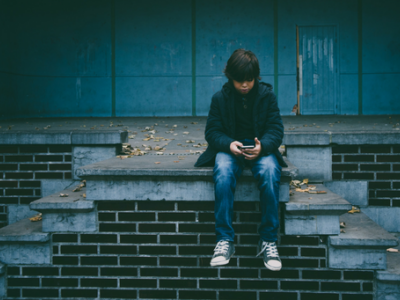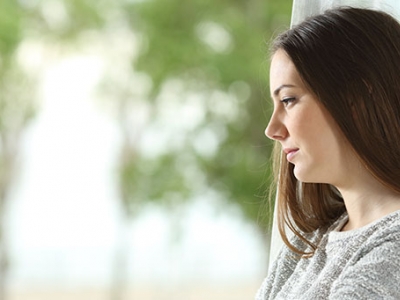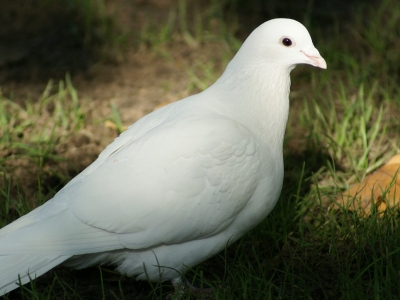
Helping kids cling to God in COVID times
Counsellor Miriam Chan explains how to guide children through fear and uncertainty.
Unhappy anniversary. This week marks one tumultuous year since COVID-19 hit Australian shores. This wretched disease has turned our entire world on its head, completely upending the way we live, connect and learn. And it has taken so many lives.
During the past year, I have prayed fervently for the healing of my aunt and uncle who contracted COVID-19. My uncle was hospitalised for a month; my aunt was in ICU on a ventilator. A church friend’s mum died from COVID-19 but tragically, travel restrictions prevented her from attending the funeral. I have taken my own child to see a mental health worker due to fears about COVID-19 testing, triggered by a past experience.
In my work as a high school counsellor, I have seen the ongoing cost of anxiety as students and staff have been cut adrift from their usual moorings. Many are consumed with thoughts about their own mortality and asking existential questions. Children are angry about being in lockdown, depressed, confused, isolated and addicted to screens and social media as their primary means of human connection. Parents and carers feel poorly equipped to navigate these responses as they find themselves sitting in the same storm-tossed boat as their children. As a society our new ‘normal’ involves heightened levels of anxiety and depression.
How do we respond to this as followers of King Jesus who continues to sit on his throne? How do we build our homes, our relationships and our gatherings into safe and supportive spaces where we can weather this season of fear, loss and uncertainty together?
1. Acknowledge losses and griefs
Last year was my son’s final year of primary school, but thanks to the pandemic he has faced a huge amount of loss. He has missed out on excursions, camps and the Year 6 farewell evening. He will also lose his cohort of good friends as they head to different high schools. I have seen my son sobbing in the car, crying into his breakfast and mingling his tears with his evening shower. I hold space for his sadness and let him grieve, because his grief is right and appropriate. There is ‘a time to weep and a time to laugh, a time to mourn and a time to dance’ (Ecclesiastes 3:4).
This past year, children of every age have had to cope with countless changes and cancellations. It is important to make our home a safe place for them to acknowledge and express their disappointment, even if it is at God or at us. Let’s resist the urge to rush away big emotions and instead become safe harbours where they can bring their sadness and pain. How precious it is to carry our children to our Father God who is ‘close to the broken-hearted and saves those who are crushed in spirit’ (Psalm 34:18).
We can do this by:
- making time to talk with our children about their grief
- praying with them for healing and comfort
- liaising with their teachers and suggesting they visit their school counsellor/chaplain
- linking them with a mentor
- seeking extra support for ourselves e.g. talking to a Bible study leader or counsellor.
Please note: if you or someone in your care find that sadness does not wash over and allow for the enjoyment of normal activities, it is worth visiting a GP for a mental health check-up.
2. Challenge fears and take them to God
Although COVID-19 has been around for a year, the situation is constantly changing. We and our children are on a rollercoaster of emotion, with our anxiety levels going up and down with each new development.
Within the clutter of worries it can help to identify the ones that are irrational or based on the worst-case scenario, such as ‘I have a sore throat so I probably have COVID-19 and will die’. You can reduce such anxious thoughts in your children by talking about them and challenging them with facts, for example, ‘Very few Australians who haven’t come back from overseas are catching COVID-19 nowadays’, ‘Most children with COVID-19 have few symptoms and recover very well’. If our children do need to get tested, we can pray with them, leaving the results in God’s hands, and then do something they enjoy while we wait.
Let’s help our children to develop a habit of taking their very real fears to their very real God. It’s not about pretending we don’t have any fears; it’s about knowing what to do with them:
‘Do not be anxious about anything, but in every situation, by prayer and petition, with thanksgiving, present your requests to God. And the peace of God, which transcends all understanding, will guard your hearts and your minds in Christ Jesus.’ Philippians 4:4–6
We could also:
- put on a playlist of songs about God’s faithfulness
- write out a Bible verse for our children to find somewhere, such as in their lunch box or inside their shoes
- give children some tools for managing the symptoms of anxiety such as breathing, grounding and muscle-relaxation exercises (you can find examples on YouTube).
3. Look for blessings and opportunities
As a way of marking our first anniversary of living with COVID-19, let’s pause and consider how we've grown and what we’ve learnt.
When forced to learn new things quickly, we usually stepped up to the challenge. How quickly our churches, workplaces and schools adapted to moving online! Having activities cancelled and working from home also provided extra time together as a family. Many of us were forced to prayerfully depend on God for our daily needs. Slowing down created more space to listen to God’s word or connect with people online or on the phone. Many Christians lovingly cared for others in their church or neighbourhood.
Let’s help our children to see these blessings by:
- sitting down to name the positives as a way to ‘give thanks in all circumstances’ (1 Thessalonians 5:18a)
- brainstorming how you could bless others, such as those who can’t see family or are worried about finances.
4. While we wait …
We live in the in-between times. An effective vaccine has been approved overseas and is promised to arrive in Australia very soon. However, we can’t throw away the masks and social distancing measures just yet. This waiting period is a time to keep asking God to protect us while we take all precautions to limit the spread of the disease.
This is an opportune time to teach our children how to live in a season of ‘now and not yet’. Our Lord Jesus has promised to return very soon but it hasn’t happened just yet. Our children have a newly developed realism about human frailty and suffering this side of heaven. But we can encourage them to live with hope and confidence, knowing that when Jesus returns, death will be defeated forever and human pain and sorrow will be eternally removed with a 100 per cent efficacy rate.
In these times, we may feel adrift in a sea of uncertainty and anxiety. But the sea belongs to our God and those who look to him are anchored and secure. Jesus is coming again and his return will throw our entire world on its head, shutting down our society so he can make it all anew. We look forward to the day when all our unhappy anniversaries will be forgotten.
In the meantime, cling onto the life raft! Carry your children to it and take your neighbours with you, with full assurance that in God’s good timing, arrival at your final destination is only a blink of an eye away.
---
Miriam Chan has qualifications in social work, theology and counselling. She is a mother of two, a ministry wife and a counsellor at the University of Sydney. She is co-editor of For the Joy: 21 Australian Missionary Mother Stories on Cross-Cultural Parenting and Life.
For more articles from Growing Faith, subscribe to our monthly e-newsletter.
To hear about the latest books and resources from Youthworks Media, subscribe here.








